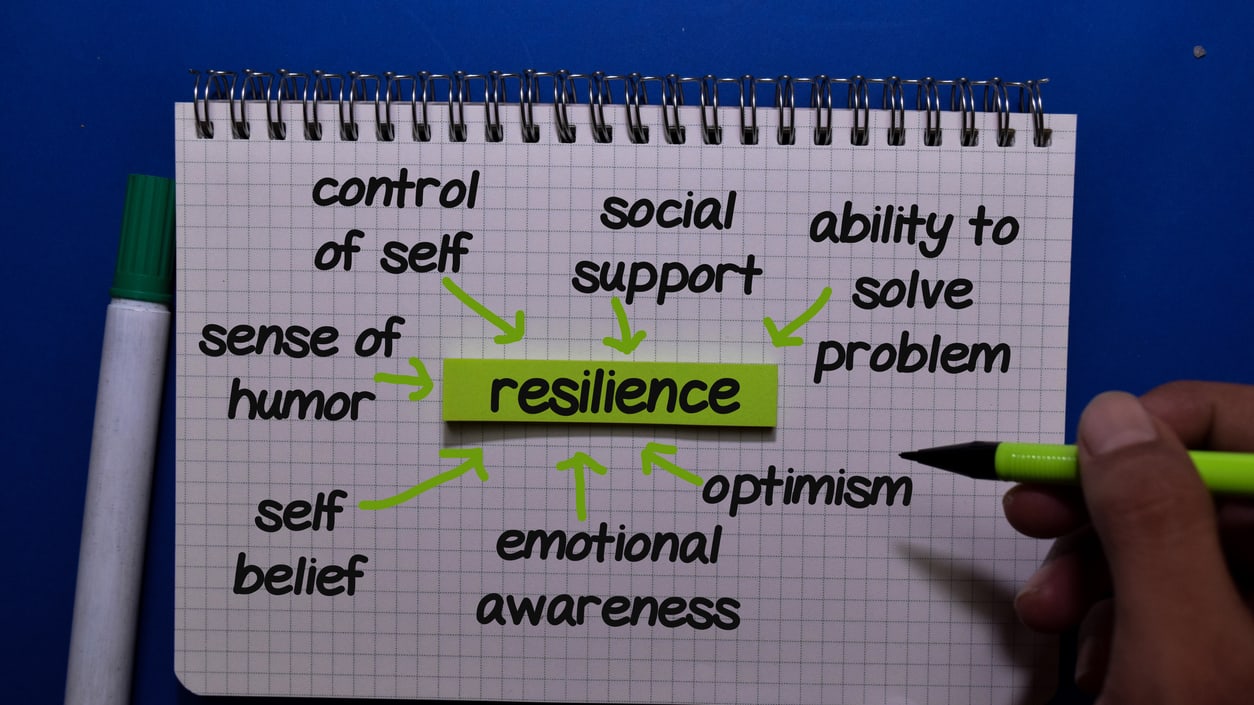Athletes often talk about resiliency when they've bounced back from a defeat or a less-than-ideal training day. But resiliency is also sorely needed in the workplace, especially in these times of uncertainty, anxiety and economic worries amid the pandemic.
What Is Resiliency?
Resiliency isn't quite the same as stress management. Stress management tends to be reactive, the damage control needed when a crisis hits. Resilience is more proactive, teaching people to build ability and skills so they're prepared for the next crisis, and the one after that.
As a manager, you can explain to your workers that resilience training means learning how to deal with challenges and setbacks in a different way than they may have learned before. Becoming resilient, experts say, doesn't just help you get through a stressful time, but can also empower you to learn how to stay resilient for the long haul, and in the process experience personal growth and improve your life.
"Typically, resilience is defined as the ability to bounce back, but I think it's more than that," said Brenna Sniderman, executive director of the Center for Integrated Research at Deloitte Services LP in Philadelphia, which focuses on developing fresh perspectives on critical business issues. "It's the ability to … emerge from a crisis in a better position." Sniderman is coauthor of the report, "Bridge across uncertainty," which discusses how crisis leadership with a human focus can support business resilience.
"The word I hear most often associated with resilience is empowerment," said Paula Davis-Laack, founder and CEO of the Stress & Resilience Institute, a Milwaukee-based training and consulting firm. "Learning to be resilient puts you back in the driver's seat. You can be taught skills that develop resilience muscles."
While levels of resilience vary from person to person, everyone starts with some, said Dr. Gail Gazelle, assistant professor of medicine at Harvard Medical School and executive coach for physicians. She wrote Everyday Resilience: A Practical Guide to Build Inner Strength and Weather Life's Challenges (Rockridge Press, 2020) and views resilience as ''a deep well of resources that we all have within us.''
Among the ways to build resilience:
Rethink reactions to stress. Urge workers to stop ''catastrophizing" when something negative happens at work, said Davis-Laack, whose forthcoming book is Teaming Up Against Burnout from Wharton School Press. To help workers do that, a manager needs to be more transparent in everyday interactions. For instance, instead of messaging a worker to, "Come see me in my office," try, "Please come by to talk about questions I have on your report."
As a manager, you should also aim to be more transparent about the company, its status, its expectations of workers and its future plans, Davis-Laack said.
She added that managers can encourage workers to take three steps to reduce catastrophizing about a situation:
- Write down the worst-case scenario.
- Write down the best-case scenario.
- Identify the most likely scenario.
Sniderman tells managers: "Make sure your workforce feels comfortable coming to you with questions." That builds feelings of psychological safety, in turn building resilience. That kind of support, she said, ''shouldn't end with the crisis itself," but needs to be ongoing.
Encourage connections. Staying connected is crucial for resiliency, and a manager can help foster those connections. Davis-Laack recalled a lawyer who got promoted, then felt her colleagues cooled toward her because she was now "the boss." Then the lawyer's mentor retired, and she felt her support network was gone. "Having people you can reach out to for support is one of the most fundamental cornerstones of resilience," Davis-Laack said.
One way managers can foster that connection is to recognize and talk about small wins—not just the annual awards or the goals that took many years—and celebrate those small victories regularly, she added.
Simple, brief check-ins with workers during the workday, "showing an interest in who they are versus what they do, is a powerful way to ensure resiliency on a personal and professional level," said Joanne Heyob, senior vice president of operation strategy and design for WD Partners, a strategy, design and architectural firm in Columbus, Ohio.
Pay attention to self-care and well-being. It's difficult to feel resilient when you are exhausted, depressed or anxious. Managers should destigmatize the use of well-being programs, including mental health offerings, Sniderman said.
Stay in the moment. Learn and practice mindfulness, said Phillis Morgan, founder of Resilient at Work, a consultancy in Alexandria, Va., that helps organizations tackle workplace conflict and stress. Try one of the several mindfulness apps out now.
Focus on strengths. Pointing out a worker's strengths and accomplishments builds resiliency. Gazelle said workers at all levels need this—from the physicians she coaches to a shelf stocker at the market. One of Gazelle's doctor clients had a backlog of 350 charts to complete. Gazelle found out that the doctor's manager berated her for the backlog, while dismissing her excellent care for patients. Once the doctor's manager took suggestions from Gazelle and focused on the doctor's strengths—and asked what she could do to help with the charts—the doctor got the resilience she needed to tackle the backlog.
Kathleen Doheny is a freelance writer based in Los Angeles.
Was this resource helpful?




